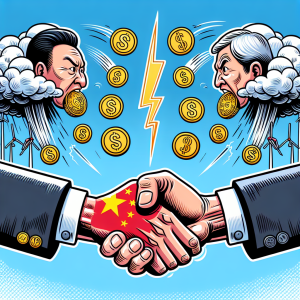Singapore is navigating a complex economic landscape marked by escalating tensions between the United States and China. In a recent address, Deputy Prime Minister Gan Kim Yong emphasized the need for Singapore to bolster its economic resilience through expanded trade partnerships and reforms to the World Trade Organization (WTO). This strategic response aims to safeguard the nation’s interests amidst a backdrop of increasing protectionism and geopolitical uncertainty.
DPM Gan highlighted the disruptive impact of the US’s "reciprocal tariffs," which have significantly altered the established rules-based trading order. These tariffs, designed to protect domestic industries, pose a risk to Singapore’s attractiveness as an investment hub and could hinder regional economic growth. The US remains a crucial investor in Singapore and ASEAN, making the potential fallout from these tensions particularly concerning.
To counter these challenges, Singapore plans to enhance its trade network by advancing Free Trade Agreements (FTAs) with countries in Latin America and exploring new partnerships within the ASEAN bloc and the Gulf Cooperation Council. This initiative is designed to diversify trade relationships and strengthen supply chain resilience. Additionally, DPM Gan pointed out ongoing collaborations with over 70 nations aimed at reforming the WTO, especially in critical areas like digital trade, which is essential for the future of global commerce.
The stakes are high, as the risk of a full-blown trade war looms. Current tariffs, which can reach as high as 145% on Chinese goods and 125% on US goods, threaten to choke off over $600 billion in annual trade, significantly impacting global supply chains that are vital to Singapore’s economy. DPM Gan expressed concern that such an environment could lead to a more unpredictable global economy, undermining cooperation on pressing issues such as climate change.
In light of these developments, Singapore is establishing the Economic Resilience Taskforce. This body will focus on creating immediate support measures and long-term strategies to adapt to the evolving economic landscape. The government’s proactive approach includes engaging with business leaders to understand their concerns and adjusting policies to promote economic stability.
Overall, Singapore’s strategy reflects a keen awareness of the urgent need for reform within the global trading system. By maintaining open markets and advocating for necessary changes at the WTO, Singapore aims to safeguard its economic interests and position itself as a resilient player in international trade, even as global tensions rise.




